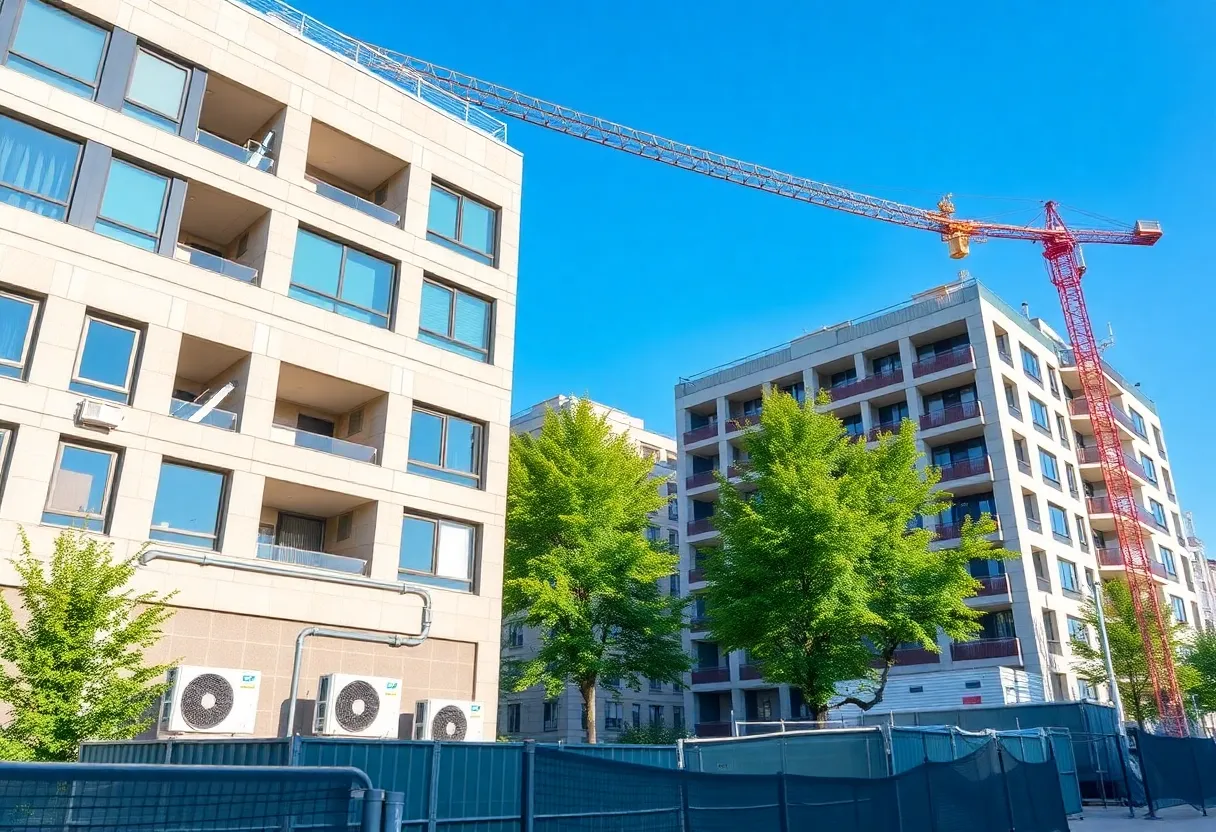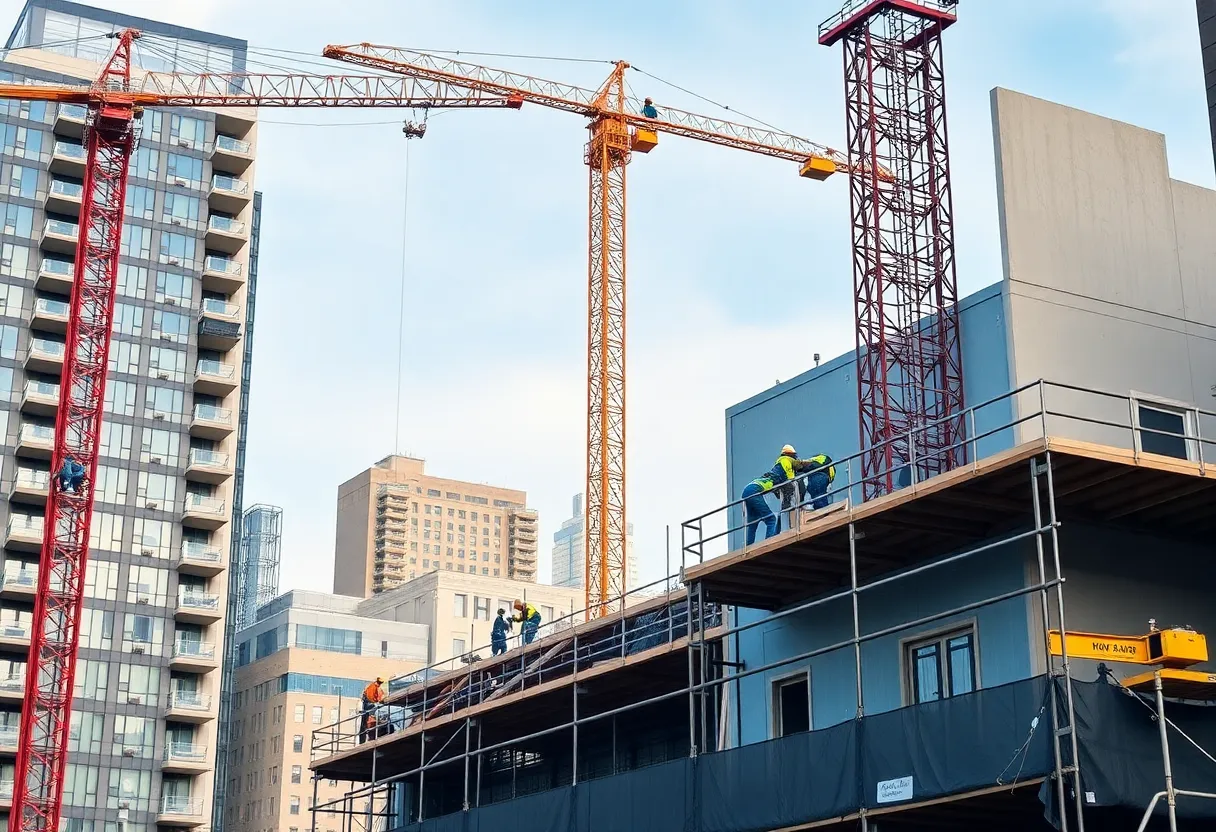News Summary
New York has become the first state in the U.S. to adopt all-electric building standards, aiming to reduce carbon emissions from its buildings. The new regulations, set to take effect by the end of 2025, prohibit gas and fossil fuel use in most new buildings and promote heat pumps for heating and cooling. While some exceptions apply, these standards are seen as a critical step in New York’s climate action initiatives and are expected to decrease energy bills for homeowners. The decision reflects a commitment to decarbonize amidst ongoing opposition from fossil fuel advocates.
New York has emerged as the first state in the United States to implement an all-electric building standard, marking a significant milestone in the ongoing climate action initiatives aimed at reducing carbon emissions. On July 25, 2025, the State Fire Prevention and Building Code Council officially approved the new regulations, which will prohibit the use of gas and other fossil fuels in most new buildings across the state.
The new standards were established under the 2023 All-Electric Buildings Act and are set to take effect starting December 31, 2025. Initially, these regulations will apply to buildings that are less than seven stories tall and to commercial and industrial structures that are up to 100,000 square feet. Compliance will be required for larger buildings by 2029. The code is designed to encourage the installation of heat pumps and heat-pump water heaters, which are essential for heating and cooling purposes without relying on fossil fuels.
Buildings are a major contributor to the state’s carbon footprint, accounting for approximately 31% of New York’s carbon emissions. By mandating all-electric standards, New York aims to significantly reduce these emissions and align practices with broader climate goals. In particular, the new legislation anticipates potential increases in initial construction costs; however, these are projected to decrease overall energy bills by about 17%, potentially saving homeowners around $5,000 over thirty years.
There are exceptions to the all-electric standard, which include specialized facilities such as laboratories, crematoriums, and restaurants, as well as larger buildings that may not be able to transition to all-electric systems due to grid limitations. These exceptions aim to balance the needs of different types of buildings and ensure that essential services continue uninterrupted.
The implementation of the all-electric standards follows a recent legal victory, where a federal court upheld the state’s ability to enforce the All-Electric Buildings Act amidst challenges from construction and fossil fuel interests. These opponents have also sought federal intervention to obstruct the new regulations, highlighting the contentious nature of the legislation.
Despite the opposition, research suggests that all-electric construction may actually be less expensive over time compared to traditional buildings that rely on gas or fuel oil. Additionally, the transition is expected to lead to improved air quality, as reliance on fossil-fuel-powered heating appliances will be diminished. Enhancements in air quality are particularly vital for low-income communities and communities of color, who often bear the brunt of air pollution-related health issues.
Gas-powered stoves, which are prevalent in many homes, have been shown to contribute significantly to indoor air pollution. Statistics indicate that one in five cases of childhood asthma in New York can be attributed to emissions from gas stoves, underscoring the serious health implications of fossil fuel reliance in home heating and cooking.
The new all-electric standards are indicative of New York’s commitment to decarbonizing the building sector, especially in light of the federal government’s recent backtracking on renewable energy support. Assemblymember Emily Gallagher, who was instrumental in sponsoring the 2023 legislation, has acknowledged the considerable pushback from fossil fuel advocates, particularly regarding the feasibility and affordability of housing in the wake of these regulations.
As the transition progresses, there are concerns regarding how existing buildings will be impacted. Future phases may require these structures to align with the all-electric standards as gas appliances reach the end of their service lives, which hints at an evolving landscape for both construction and real estate in New York.
Deeper Dive: News & Info About This Topic
- Canary Media: New York Finalizes Gas Ban
- Wikipedia: Electric Building
- EcoWatch: New York New Buildings Electric
- Google Search: New York Gas Ban
- Times Union: New Buildings New York Face Major Shakeup
- Google Scholar: New York All-Electric Buildings Act
- Politico: New York Moves to Electrify Buildings
- Encyclopedia Britannica: Electric Buildings
- WGRZ: NYS Law Forces All Electric for Most New Building Construction
- Google News: New York All-Electric Standard

Author: STAFF HERE NEW YORK WRITER
The NEW YORK STAFF WRITER represents the experienced team at HERENewYork.com, your go-to source for actionable local news and information in New York, the five boroughs, and beyond. Specializing in "news you can use," we cover essential topics like product reviews for personal and business needs, local business directories, politics, real estate trends, neighborhood insights, and state news affecting the area—with deep expertise drawn from years of dedicated reporting and strong community input, including local press releases and business updates. We deliver top reporting on high-value events such as New York Fashion Week, Macy's Thanksgiving Day Parade, and Tribeca Film Festival. Our coverage extends to key organizations like the Greater New York Chamber of Commerce and United Way of New York, plus leading businesses in finance and media that power the local economy such as JPMorgan Chase, Goldman Sachs, and Bloomberg. As part of the broader HERE network, including HEREBuffalo.com, we provide comprehensive, credible insights into New York's dynamic landscape.





